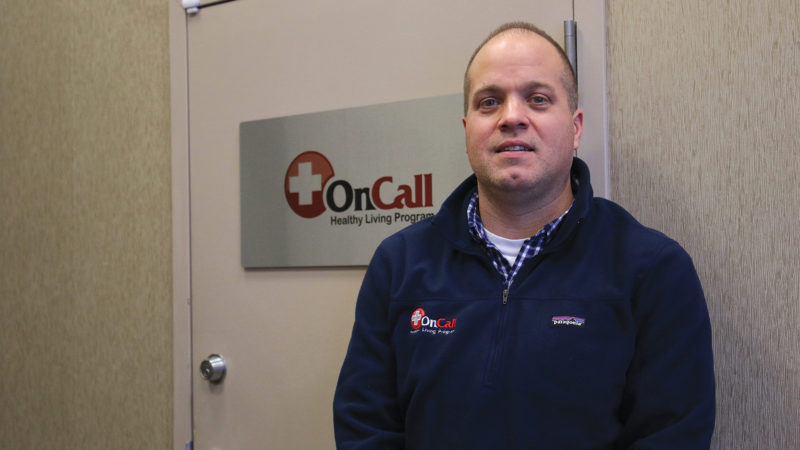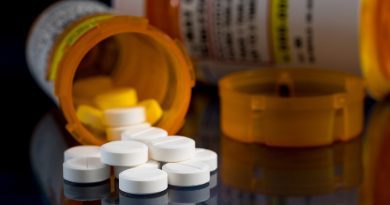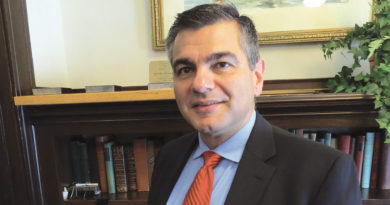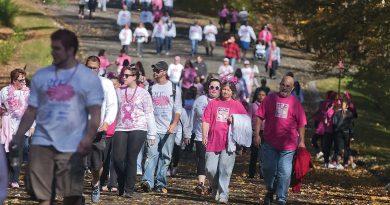OnCall Healthy Living Program Offers Welcoming Environment
A Warm Handoff
By Kayla Ebner
Addiction knows no boundaries.
This is the main message Jim Carroll, medical director at OnCall Healthy Living Program, tries to instill in everyone he comes in contact with.
By this, he means addiction can affect people in all walks of life, and is not specific to one group of individuals like the stereotype may depict.
“What many people don’t realize is, addiction is in your neighborhood, in your workplace,” he said. “It doesn’t have any boundaries.”
This is what he and other staff members at OnCall keep in mind at all times when treating patients who are recovering from a substance-abuse disorder. What first started as a mixed-treatment facility with urgent care and addiction switched over to strictly addiction services in early 2018.
The facility pulls patients all the way from the Berkshires to Worcester, and Carroll says between 550 to 600 patients visit the main office in Northampton and a satellite office in Indian Orchard.
Carroll began at OnCall in 2008 as an attending doctor before moving up to medical director in 2013, but has been on staff in the Emergency Department at Mercy Medical Center for 13 years, giving him plenty of experience with addition services and showing him how much need exists for this kind of care.
“It became clear over several years that we wanted our focus to be on the addiction side of things,” he said. “Being in the Emergency Department, we were always very well aware of the opioid crisis and what it was doing to each individual and society as a whole, so we wanted to be a part of the solution.”
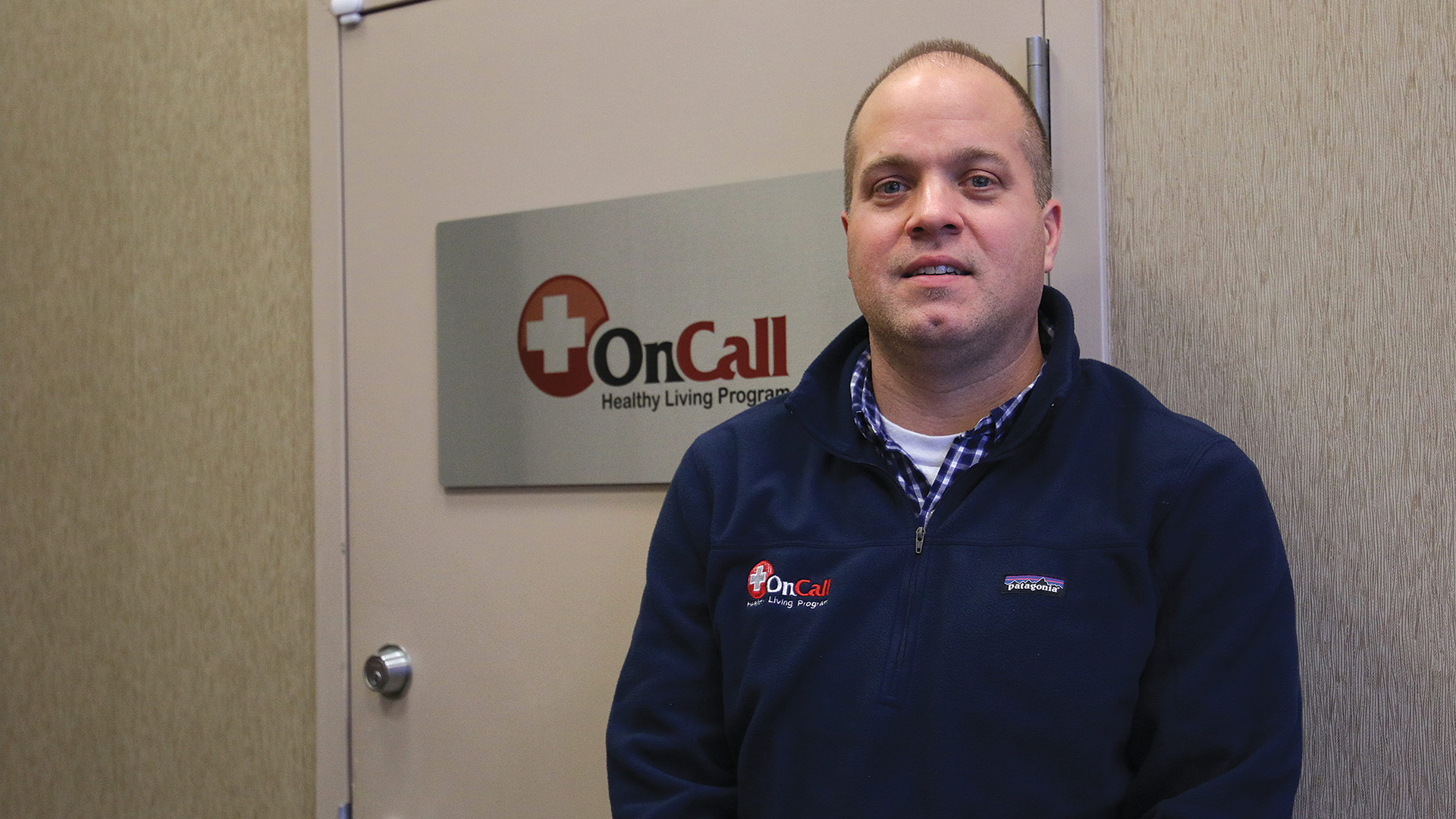
And there certainly is a need.
The opioid epidemic in Massachusetts has skyrocketed over the last decade. The Massachusetts Department of Public Health reported 1,091 confirmed opioid-related overdose deaths in the state during the first nine months of 2019, with an additional 332 to 407 deaths expected by year’s end.
This makes the services OnCall provides even more imperative. In recent years, OnCall has been putting a new two-part model to the test to make its services even more effective, working toward trying to bring the number of opioid-related deaths much closer to zero.
Beyond the Medicine
Carroll said the mission for every medical provider and behavioral-health professional at OnCall is to help patients recover and lead healthy lives, providing a comfortable environment free of judgment.
“We’re all about getting people on the path to becoming a better version of themselves,” he explained. “The more people we have in treatment, the less people we have at risk for death from overdose that we see in the Emergency Department on an almost daily basis.”
In order to accomplish its goal of helping people get on a healthier and safer path, OnCall uses a two-part model and what it calls ‘a warm handoff’ to get patients back on track. This includes the use of medication along with therapy and other supportive services to help address issues related to alcohol and opioid dependence.
“It became clear over several years that we wanted our focus to be on the addiction side of things. Being in the Emergency Department, we were always very well aware of the opioid crisis and what it was doing to each individual and society as a whole, so we wanted to be a part of the solution.”
“I really couldn’t say that one would be okay without the other, which is why we utilize both,” said Carroll, adding that frequency of visits for therapy and medication checkups vary based on how patients are doing.
He added that one of the hardest parts is getting people to take that first step through the door. “One of our biggest challenges is getting people in for the first follow-up visit. When we actually get people to show up, they usually have a positive experience, and then they’re off and running on their recovery.”
He also noted that, according to the limited studies OnCall has conducted, somewhere between 70% and 90% of people who have an opioid-use disorder are not in treatment — yet another reason for the facility to eliminate its urgent-care services and move to addiction services full-time.
“We know a lot of people need help, and with a rise of more and more urgent cares, that became less of a need,” he said.
Another big challenge is the stigma surrounding addiction and treatment, and Carroll said people sometimes worry about how they are going to be treated. This has prompted OnCall to focus on cultivating a comfortable environment for patients from the time they walk in the door to the moment they walk out.
“One of the things we’ve been very cognisant of is what kind of environment we present for patients who present to our clinic,” he told HCN. “Our philosophy and our feeling here is that, once someone actually presents here, they should feel very comfortable being here.”
Rewarding Challenge
“A no-judgment zone” is another way Carroll describes OnCall.
Unfortunately, stigma still does get in the way of people seeking treatment, and labels are often assigned to people who have substance-abuse disorders. He stressed that it’s important for people to realize addiction is a disease — one that can happen to anyone.
“Addiction doesn’t have any special predilection toward any race, gender, age, or profession,” he said. “When people actually understand the disease process and understand that addiction is a brain disease and that it’s not a moral failing, they’ll understand that this isn’t someone trying to proactively ruin their lives or the lives of the people around them.”
He drove this point home by asking a perspective-shifting question: “if someone had type-2 diabetes, would you hold that against them?”
Despite the various challenges that come with the job, for Carroll, the rewards are innumerable.
“Seeing the turnarounds that happen in people’s lives is amazing,” he said. “We see people at some of their lowest moments, and when we can be part of the support team that turns things around for them and you see people get their self-esteem back, their jobs back, their families back, that’s very gratifying as a provider. Seeing people literally turn their lives around in front of you is one of the most rewarding things of my professional career.”
And although the 600 patients OnCall currently serves might seem like a huge number, Carroll says the practice has the capacity for double that amount, and encouraged anyone who is suffering from a substance-abuse disorder, or knows someone who is, to seek help immediately.
“The busier we are, the more people we’re helping, and that’s a good feeling,” he said. “Until we aren’t seeing any overdoses anymore, we just keep moving forward and trying to be part of the solution.”

